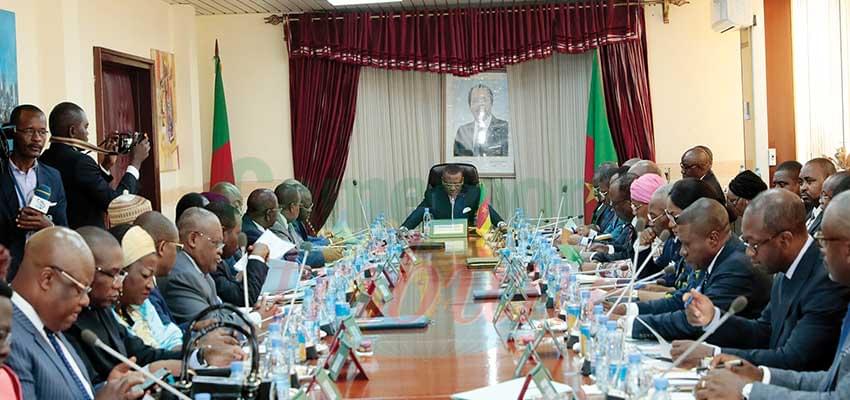
Hereunder is a press release following the National Decentralization Board Meeting of Tuesday 17 September 2019 chaired by PM, Joseph Dion Ngute.
« The Prime Minister, Head of Government, His Excellence Joseph DION NGUTE, today Tuesday 17 September 2019, as from 9:00 a.m. in the Cabinet Meeting hall chaired the first ordinary session of the National Decentralisation Board for 2019. Apart from his close aides, the meeting was attended by Members of Government, Parliamentarians, representatives of the Economic and Social Council, representatives of Municipal Authorities and those of civil society.
Five (5) featured on the agenda namely: The activity report of the Permanent Secretariat of the National Decentralisation Board since the last session, presented by the Permanent Secretary of the Board; The statement of the Minister for Decentralization and Local Development on: “the implementation of projects to deepen and fast track the decentralization process during the first half of 2019”;
The statement of the Minister for the Economy, Planning and Regional Development on: the physical and financial execution on 30 June 2019, of council projects financed by the General Decentralization Allocation for 2019: difficulties encountered and corrective measures prescribed or envisaged;
The report of the Minister for Basic Education on the implementation of instructions of the Prime Minister, Head of Government, following the Board session of 20 December 2018, to liaise with the Ministers of Decentralization and Local Development; Public Contracts and Finance, to set up a sustainable and reliable mechanism for making the minimum package available to all schools concerned, before the re-opening of schools;
The paper presented by the representative of the Association of United Councils and Cities of Cameroon (UCCC) on: “the assessment of the exercise of powers transferred to Councils by Law No. 2004/018 of 22 July 2004.
In his opening remarks, the Prime Minister pointed out that the session came a few days after the Head of State’s message to the Nation announcing the holding of a Major National Dialogue at which one of the key themes would be decentralization. This will require the more active involvement of Members of the Board.
The Head of Government also recalled that the session came after the re-opening of schools which logically coincides with the handing over of the “minimum package” and necessary didactic materials to schools to ensure the hitch-free resumption of classes.
Lastly, since the transfer of powers to Councils by the State was completed in December 2016, he said the operation needs to be assessed with stakeholders on the field in terms of the effective transfer of the powers by the Government departments concerned and how these powers were being exercised by the beneficiary councils.
Reporting on the activities of the Permanent Secretariat of the National Decentralization Board since the last session, the Permanent Secretary indicated that the Board mostly followed up the implementation of the instructions of the Head of Government during the Board session of 20 December 2018, and participated in inter-ministerial and other meetings linked to decentralization.
In addition, the Permanent Secretariat contributed to the codification of the decentralization process. In particular, it updated the draft National Decentralization Strategy; drafted the decree on the establishment, organisation and functioning of the National School of Local Administration (NASLA), as part of the reform of the current Local Government Training Centre (CEFAM); and prepared draft legislative and regulatory instruments relating to Regional Councils.
In his statement, the Minister for Decentralization and Local Development reviewed the implementation of projects to deepen and expedite the decentralization process during the first half of 2019. With regard to the deepening of decentralization, the Minister underscored the holding of the General Councils Forums on 6 and 7 February 2019, under the distinguished patronage of the President of the Republic, with a central theme: “Deepening decentralization for a renovated Cameroonian council”.
Thanks to the Forum, which brought together the 360 local councils and 14 city councils of Cameroon, and key actors of the decentralization process, a participatory and objective diagnosis of the organization and functioning of councils was conducted. Effective strategies were also identified to enable councils to fully play their role as drivers of local development. With regard to fast tracking decentralization, the Ministry of Decentralization strove in earnest to put in place the second echelon of local authorities, namely the Region.
In that regard, two landmark bills were defended during the March 2019 session of Parliament: the first, amended and supplemented certain provisions of Law No. 2012/001 of 19 April 2012 instituting the Electoral Code; and the second fixed the number, proportion by category and allowances of Regional Councillors. These instruments were enacted into law by the President of the Republic on 25 April 2019.
The General Decentralization Allocation for the current year has made provisions for the putting in place of Regions. All ministries concerned by the transfer of powers to regions have also been identified and contracted for preliminary consultations. For his part, the Minister for the Economy, Planning and Regional Development presented the difficulties encountered and the corrective measures prescribed or envisaged during the physical and financial execution of council projects funded by the General Investment Allocation as on 30 June 2019, for the current year.
With regard to investment resources transferred to local and city councils for FY 2019, the Minister for the Economy revealed that a new method of budgeting, delivery and monitoring of public investment resources transferred to local authorities has been prepared pursuant to the instructions of the Prime Minister, Head of Government.
The new arrangement aims to involve councils in the entire process of selection and implementation of investment projects financed by transferred votes. In addition, it makes it possible to transfer more public investment votes to councils and to also enhance the transfer mechanism.
The positive forecasts of the Medium- Term Budget Framework have made it possible to increase public investment votes transferred to local authorities to CFAF 91.4 billion for FY 2019, equivalent to a 53.4% increase over 2018. The resource breakdown is as follows: i) CFAF 36 billion distributed equally to 360 Councils, or CFAF 100 million to each, under the General Allocation for investment; and ii) CFAF55.4 billion transferred as endowment to local and city councils, by sector ministries having transferred powers.
With regard to the mid-term review of the delivery of public investment votes transferred to councils in 2019, MINEPAT indicated that such transferred resources are placed at the disposal of Municipal authorities in the form of expenditure authorizations, in line with the provisions of Circular No. 001/C/MINFI of 28 December 2018, on the implementation of the budget of the State and other public entities in FY 2019.
Summary data collected on 30 June 2019, after the holding of Local Follow-up Committees on the physical/financial execution of public investments indicate that the rate of physical execution of projects is 18.50%, against 14.57% at the same period last year; corresponding to a 3.93% increase. Financial execution is estimated at 9.71%, against 6.20% at the same time last year, corresponding to a 3.51% increase.
Although on the increase, these results however remain unsatisfactory compared to FY 2018.
To address persistent difficulties, MINEPAT prescribed a number of corrective measures, including accompanying local authorities in the preparation of council development plans through PNDP; the signing by MINEPAT and MINDDEVEL of a circular letter outlining the conditions and methods of execution, monitoring and control of projects financed by the investment window of the General Decentralization Allocation, to avoid blockage of the projects concerned; the appointment by the Minister-Delegate at the Presidency of the Republic in charge of Public Contracts, of the chairpersons and members of internal tenders boards in all local authorities concerned; organization in collaboration with MINDDEVEL and MINFI, of capacity-building workshops for mayors, sector ministries and devolved State Services for more effective use of the mechanism for budgeting, delivery and monitoring of transferred resources.
In his statement, the Minister for Finance pointed out that CFAF 2.5 billion and CFAF 7.160 billion were paid under the General Allocation for Investment and Functioning in FY 2016 and 2017 respectively. He recalled in passing that the constant audit of arrears under the General Allocation for F...
Cet article complet est réservé aux abonnés
Déjà abonné ? Identifiez-vous >
Accédez en illimité à Cameroon Tribune Digital à partir de 26250 FCFA
Je M'abonne1 minute suffit pour vous abonner à Cameroon Tribune Digital !
- Votre numéro spécial cameroon-tribune en version numérique
- Des encarts
- Des appels d'offres exclusives
- D'avant-première (accès 24h avant la publication)
- Des éditions consultables sur tous supports (smartphone, tablettes, PC)






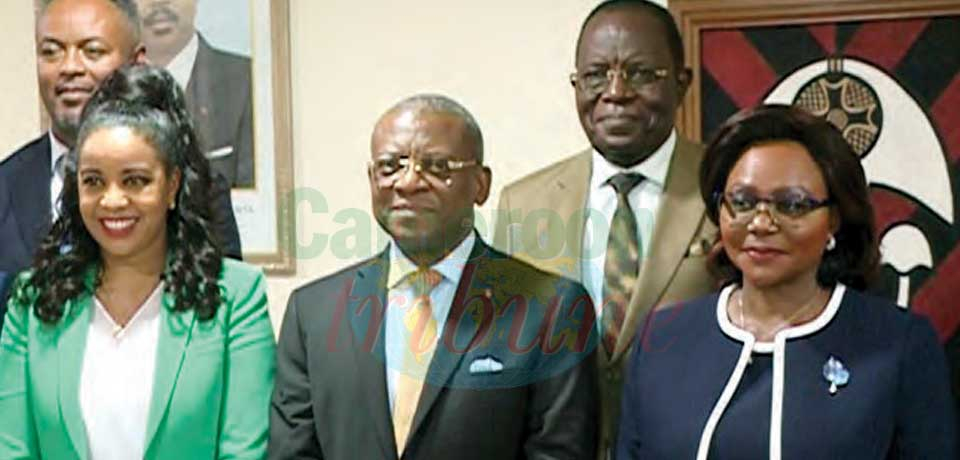
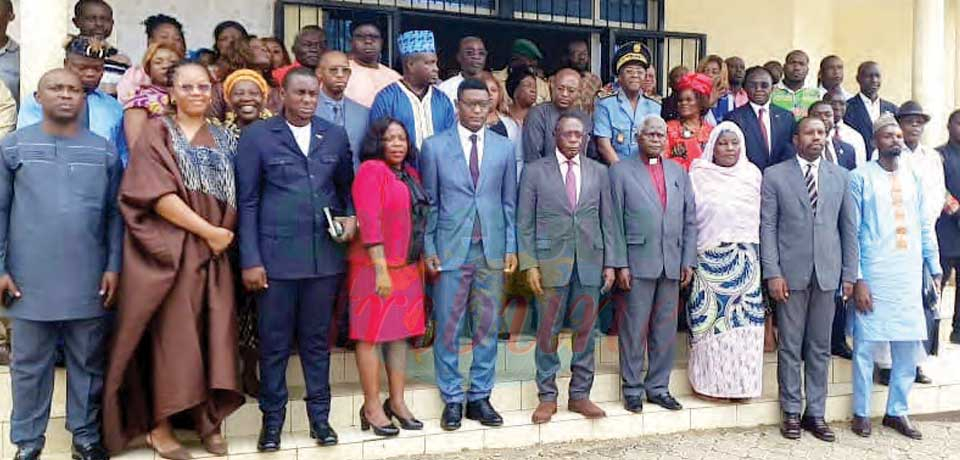
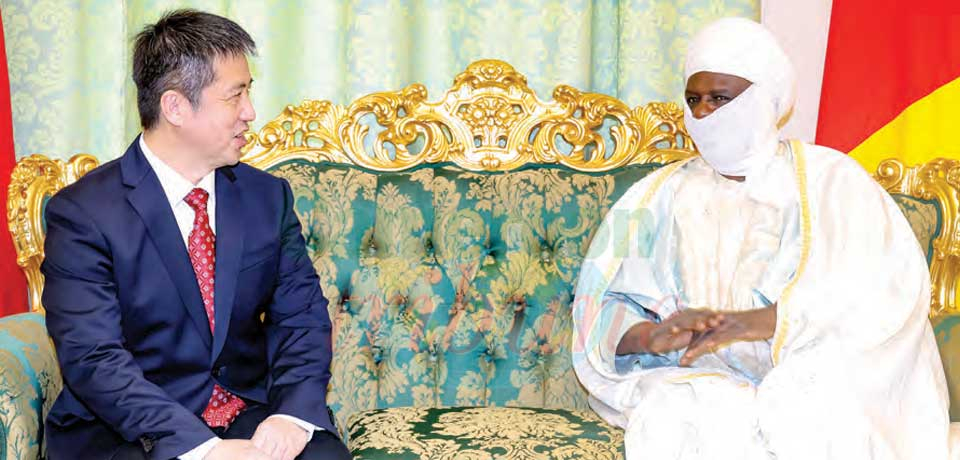
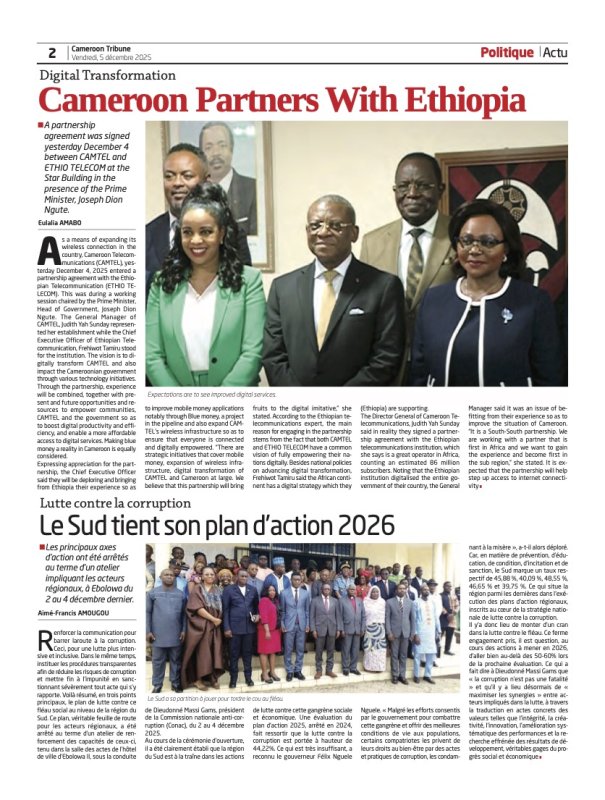




Commentaires